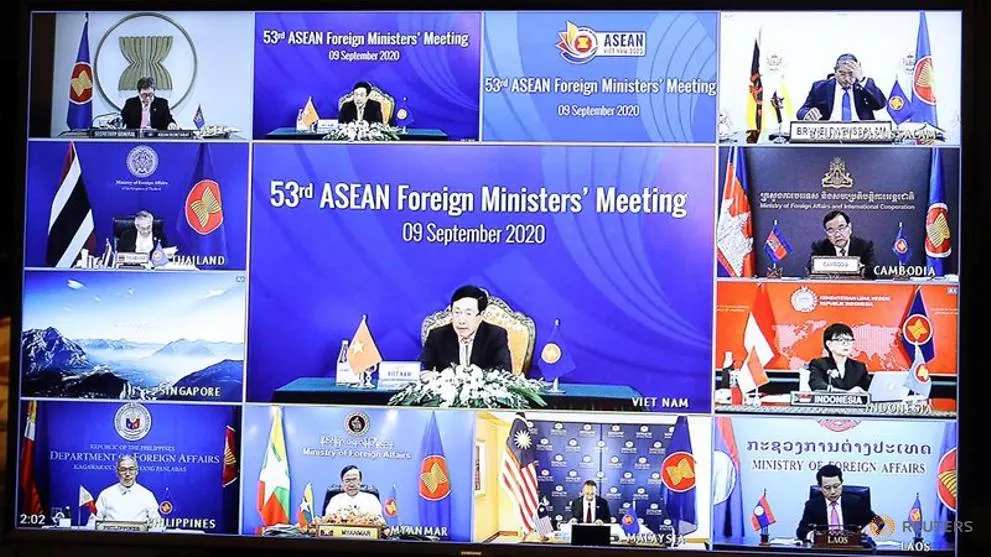Asia summits under way amid US-China friction
11 September, 2020

Southeast Asian foreign ministers kicked off a number of regional summits on Wednesday (Sep 9) likely to seek collaboration to fight global threats and to try to de-escalate a tit-for-tat rivalry as the world's two biggest economies vie for influence.
Russia, Japan, Australia, South Korea and India are among those remotely joining an event hosted by Vietnam that will add a 27-nation security forum, as concern grows about rhetoric and accidental conflict, and about other countries being swept up in the fray.
"The regional geopolitical and geoeconomic landscape, including the South China Sea, are witnessing growing volatilities that are detrimental to peace and stability," Vietnamese Prime Minister Nguyen Xuan Phuc said in opening the summit.
Vietnam's foreign minister, Pham Binh Minh, said the role of international law and multilateral institutions were being "greatly challenged".
Indonesian Foreign Minister Retno Marsudi within an interview with Reuters cautioned the United States and China against entangling Southeast Asian nations within their geopolitical battle.
"We don't need to get trapped by this rivalry," Retno said on Tuesday, describing militarisation of the waterway as "worrying".
AMERICA has spoken out strongly against China over trade, technology and its own maritime conduct, and President Donald Trump has trumpeted his tough approach to China in the run-up to the united states presidential election.
Washington has accused Beijing of bullying its neighbours by sending ships near their offshore energy operations, and of opportunism in holding military exercises and testing new defence hardware in disputed locations, while rival claimants battle coronavirus outbreaks. China said its actions were lawful.
Since mid-August, the United States has repeatedly riled China by sending warships to the South China Sea and the sensitive Taiwan Strait and flew a reconnaissance plane over Chinese live-fire drills.
It blacklisted 24 Chinese entities over their involvement in building and militarising artificial islands.
"There is no desire to take sides - or to be observed to be doing this," said Collin Koh, a security expert at Singapore's S Rajaratnam School of International Studies.
ASEAN would instead discuss with China the advancement of a code of maritime conduct and usage of a COVID-19 vaccine, and talk to america about increasing investment from corporate America.
ASEAN would make an effort to "de-focus on the intensifying rivalry", he said.
But Chinese State Councillor Wang Yi made a decision to improve the issue himself, accusing america of intervening directly in disputes among claimants in the South China Sea and to be the biggest driver of its militarisation.
"Peace and stability is China's greatest strategic interest in the South China Sea," he told the meeting, according to China's foreign ministry's website.
Source:
